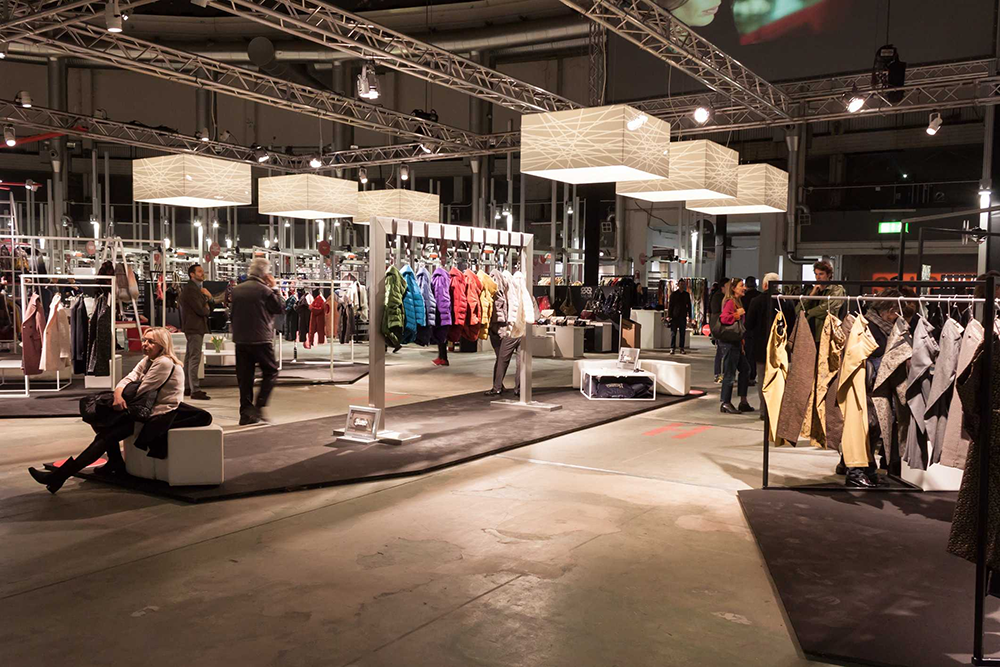Introduction
Finding the best clothing manufacturer is crucial for the success of your fashion business. Whether you're starting a clothing line, looking to expand your existing brand, or simply want to source high-quality garments for your personal use, choosing the right manufacturer can make all the difference. With so many options available, it's important to know what factors to consider in order to make an informed decision. In this comprehensive guide, we'll explore everything you need to know to find the best clothing manufacturer for your needs.
1. Define Your Goals and Needs
Before you start searching for a clothing manufacturer, it's essential to understand your goals and requirements. Ask yourself the following questions:
What type of clothing line do you want to create?
What is your target audience and market segment?
What is your desired price point for the garments?
How many units do you need to produce initially?
Are you looking for a domestic or international manufacturer?
Do you need custom design services or just production?
Having a clear vision of your objectives will help you find a manufacturer that aligns with your goals and provides the necessary services.
2. Research and Prepare
Once you have a clear understanding of your needs, it's time to start researching potential clothing manufacturers. Start by looking for manufacturers that specialize in the type of clothing you want to produce. You can use online directories, trade shows, and industry publications to find potential manufacturers. You can also ask for referrals from other businesses in the industry, such as suppliers, distributors, and retailers. Here are some steps to help you in your research:
Industry events and trade shows: If you have the opportunity to attend an industry trade show, jump at the chance! A trade show is the easiest way to find a factory. They are coming to you to show you what they can do. All you have to do is meet them halfway by showing up at the trade shows. This is your chance to get face-to-face with potential factory partners, which can make all the difference when it comes to working with them. With trade shows, you can build faster, deeper, and a lot more meaningful relationships.

Online directories and databases: There are numerous online directories and databases dedicated to clothing manufacturers. Directories and online B2B marketplaces are excellent places to find manufacturers. Contact information for thousands of manufacturers all over the world is consolidated in these places. Here are some of the most popular websites for different markets: Domestic: Maker’s Row in the US and Sqetch in Europe. Overseas: Alibaba and Indiamart. Worldwide: Kompass.Some popular ones include Fashion Go, Sourcing Link, and Apparel Magazine's directory.
Industry forums and social media groups: Engaging in industry-specific forums and social media groups can help you gather insights from other fashion entrepreneurs and gain referrals to reputable manufacturers. There are various groups and forums on websites like Facebook where you can join. You can talk to people in similar professions in these groups and ask them about reliable clothing manufacturers. Many clothing vendors for boutiques and clothing brands take part in these groups.
Referrals: Simply asking around is a great way to find new options. Word of mouth is truly the best way to get referrals. Interact with people that are in your industry. They can be designers, brand owners, or factory managers.Let’s say you start talking to a factory, but you are not compatible. They may refer you to another manufacturer who can meet your requirements.
Market research: Analyze the market and identify popular brands or competitors. Researching their suppliers can lead you to potential manufacturers for your clothing line.
Prepare for negotiations: Before contacting any manufacturers, make sure you have done your homework and prepared financial projections, production plans, and samples of your designs. This will help you negotiate better terms and ensure that both parties understand each other's expectations.
3. Evaluate Potential Manufacturers
As you research and gather referrals, create a shortlist of potential manufacturers. Evaluate each candidate based on the following criteria:

Quality and Materials: The quality of the clothing and the materials used are crucial factors to consider when choosing a manufacturer. Make sure that the manufacturer uses high-quality materials and follows strict quality control standards. Ask for samples of their work and inspect them closely to ensure that they meet your standards.
Production Capacity: It's important to choose a manufacturer that has the capacity to produce your desired quantity of clothing. If you plan to start small, look for a manufacturer that can handle smaller orders without compromising on quality. However, if you plan to scale up your business, make sure that the manufacturer has the capacity to handle larger orders without affecting the quality of the clothing.What’s more, make sure that they have the ability to produce the quantity of clothing that you need within your desired time frame. Ask about their production process and how they handle rush orders or last-minute changes.
Pricing: Pricing is another important factor to consider when choosing a clothing manufacturer. Make sure that you get a detailed quote that includes all costs associated with production, such as material costs, labor costs, and shipping costs. Compare quotes from different manufacturers to ensure that you are getting the best value for your money.
Turnaround Time: The turnaround time is the amount of time it takes for the manufacturer to produce your clothing and deliver it to you. Make sure that the manufacturer can meet your deadlines, especially if you plan to sell your clothing on a seasonal basis. A reliable manufacturer should be able to provide you with a realistic turnaround time based on the complexity of your designs and the quantity of clothing you want to produce.
Customer Service: Good customer service is essential when working with a clothing manufacturer. Look for a manufacturer that is responsive to your needs and concerns, and that is willing to go above and beyond to ensure that you are satisfied with their work. A good manufacturer should be able to answer your questions promptly and provide you with regular updates on the progress of your order.
Environmental Sustainability: Many consumers today are concerned about the environmental impact of their purchases, and are looking for sustainable products. Look for a manufacturer that follows sustainable practices, such as using eco-friendly materials, reducing waste, and minimizing their carbon footprint. This can help you attract environmentally conscious customers and differentiate your brand from competitors.
Customization Options: If you plan to create unique designs or custom clothing, make sure that the manufacturer can accommodate your needs. Look for a manufacturer that offers customization options, such as embroidery, screen printing, or dye sublimation. This can help you create clothing that stands out from the competition and meets the specific needs of your target market.
Technology and Innovation: The fashion industry is constantly evolving, and it's important to work with a manufacturer that keeps up with the latest trends and technologies. Look for a manufacturer that invests in technology and innovation, such as using advanced machinery or software to improve efficiency and quality. This can help you stay competitive in the market and adapt to changing consumer preferences.
Reputation and Reviews: Finally, it's important to consider the reputation of the manufacturer you are considering working with. Look for reviews and testimonials from other businesses that have worked with the manufacturer, and check their social media profiles and website for feedback from customers. A reputable manufacturer should have a strong track record of delivering high-quality clothing and providing excellent customer service.
4. Request Quotes and Samples
Once you have narrowed down your list of potential manufacturers, it's time to request quotes and samples. This will help you evaluate their pricing structure, production quality, and communication processes.
Prepare a detailed brief: Provide the manufacturers with a comprehensive brief outlining your requirements, including design specifications, materials, and desired timelines.
Request quotes: Ask for detailed quotes that include costs for production, sampling, shipping, and any additional services you may require.
Request samples: Request samples of their previous work or ask for a mock-up of your design to evaluate the quality of their production.
Evaluate communication: Pay attention to the communication process with each manufacturer. Responsiveness, professionalism, and willingness to address your concerns are crucial factors in establishing a successful partnership.
5. Conduct Site Visits (Optional)
If possible, conduct site visits to visit the manufacturing facilities of your shortlisted candidates. This will allow you to assess their production capabilities, quality control processes, and overall operations firsthand.
6. Make Your Decision
After evaluating quotes, samples, and site visits (if conducted), compare the manufacturers based on the criteria previously discussed. Choose the candidate that best aligns with your goals, budget, and quality expectations.
7. Draft and Sign a Contract
Before starting production, draft a contract outlining the terms and conditions of your partnership. Include details such as:
Production schedule and timeline
Order quantities and MOQ
Payment terms
Delivery and shipping procedures
Intellectual property protection (IP) provisions
Confidentiality
Post time: Nov-30-2023




